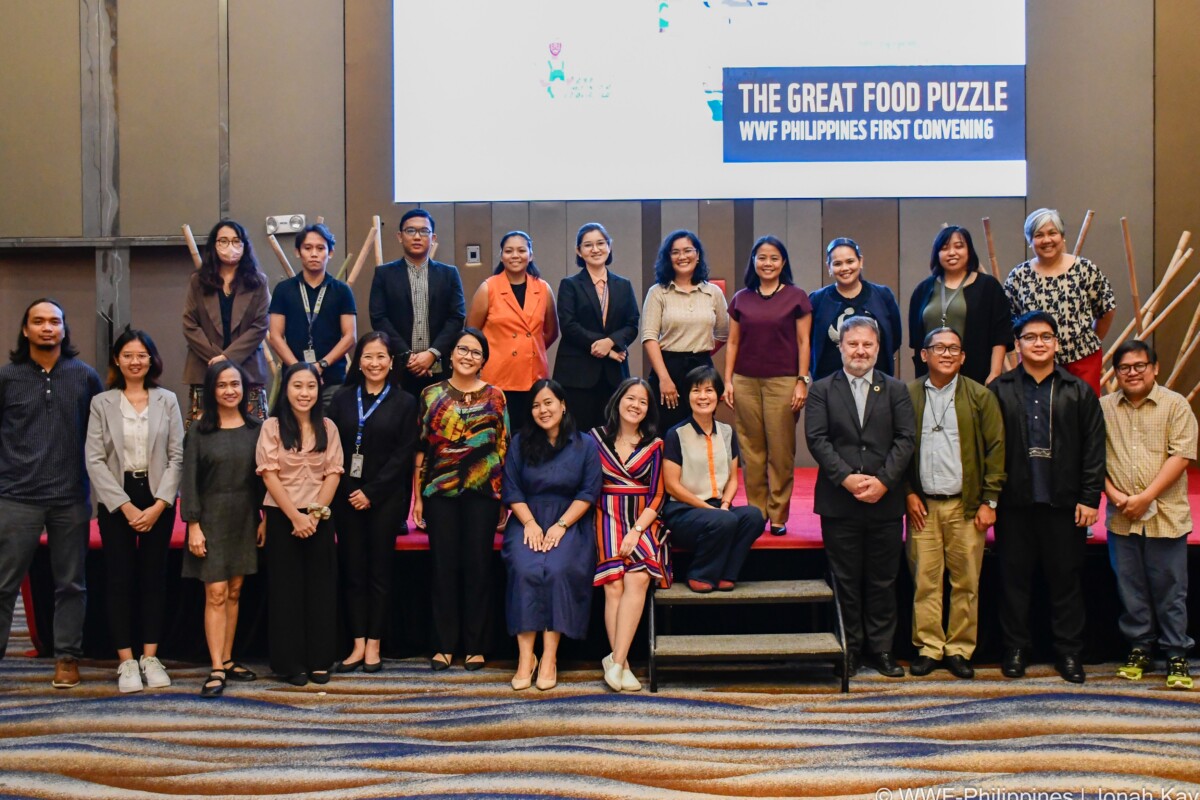WWF-Philippines holds first convening for Great Food Puzzle 2.0 (GFP 2.0) study

Attendees of the first Great Food Puzzle Philippine Convening pose for a picture. The convening offers a platform to connect different food systems experts and discuss how the project may impact food security and sustainability in the country.
The Great Food Puzzle 2.0, or GFP 2.0, is the second installation of the World Wide Fund for Nature (WWF) International’s Great Food Puzzle study. The first GFP study conducted in 2021 in four (4) countries - Brazil, Colombia, Kenya, and the United Arab Emirates, yielded insights into the similarities and differences of food systems in each country, allowing for the identification of trends.
The study produced a typology system (Type I, Type II, Type III), each representing different food systems characterized by factors such as production systems, consumption patterns, and level of food security. The full report was published in 2022, providing a detailed analysis of each country.
Following the success of GFP’s first run, WWF launched GFP 2.0, which features eight countries: China, India, Mexico, Netherlands, Pakistan, the Philippines, South Africa, and the United States. With a wider scope of countries, GFP researchers hope to reassess the transformation levers developed from the first study to make them more universally applicable.
GFP 2.0’s First Convening was held on July 19, 2023, at Novotel Hotel Araneta City in Cubao, Quezon City. It gathered stakeholders and representatives from various sectors related to food to learn more about the study. Some groups and organizations represented included the World Food Programme (WFP), the Food and Agriculture Organization (FAO), SM Hotels and Conventions Corporation (SMHCC), the Department of Agriculture’s Bureau of Fisheries and Aquatic Resources (DA-BFAR), and the Philippine Council for Agriculture and Fisheries (PCAF). Also among the attendees were scientists specializing in environmental or food-related research and representatives of non-governmental organizations (NGOs).
Melody Melo-Rijk, GFP 2.0 lead from WWF-Philippines, led the event by introducing various issues the Philippines currently faces regarding food systems, such as unsustainable food production and consumption. She stated that “the food systems are the biggest cause of nature loss,” emphasizing the importance of the GFP 2.0 study and its application to the country.
Brent Loken, Global Food Lead Scientist for WWF, attended virtually to introduce the project as a “multi-year initiative” to help understand different countries’ food systems. The event included a Q&A panel inviting attendees to ask questions and voice their concerns about localizing the study to fit the Philippine context. Loken addressed these concerns, emphasizing the collaborative nature of the project and how it was necessary to include participants’ perspectives to ensure that the study was holistic and comprehensive.
At the end of the first convening, WWF encouraged attendees to participate in the GFP 2.0 survey to gather information about food systems in the Philippines. Chrisma Salao, Director of Conservation Programs at WWF-Philippines says that “there is not one of us who will be able to solve everything, but actually a collective and collaborative action among everybody”, providing a hopeful tone to conclude the event.
WWF International representatives will conduct interviews with survey participants later this year.
About WWF:
WWF is one of the world’s largest and most respected independent conservation organizations, with over 5 million supporters and a global network active in over 100 countries. WWF's mission is to stop the degradation of the Earth's natural environment and to build a future in which humans live in harmony with nature, by conserving the world's biological diversity, ensuring that the use of renewable natural resources is sustainable, and promoting the reduction of pollution and wasteful consumption.
WWF-Philippines has been successfully implementing various conservation projects to help protect some of the most biologically-significant ecosystems in Asia since its establishment as the 26th national organization of the WWF network in 1997.
For more information, please contact:
Ms. Melody Melo-Rijk
Lead, Great Food Puzzle 2.0 (GFP 2.0)
WWF-Philippines
mmelorijk@wwf.org.ph
For media arrangements, please contact:
Ms. Chezka Guevarra
Assistant Manager for External Communications and Ambassador Programs
09276566436
cguevarra@wwf.org.ph
